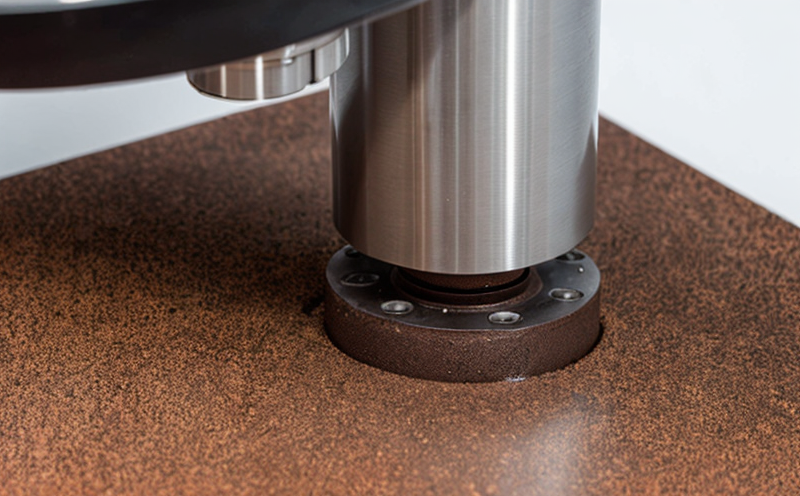Surface Coating Integrity and Defect Analysis
The integrity of surface coatings is critical in determining their performance, durability, and reliability. Surface coating integrity refers to the uniformity and adhesion of a coating layer over its substrate. This service focuses on the analysis of defects that can compromise this integrity, ensuring adherence to international standards such as ASTM D3359 or ISO 12944.
Surface coatings are used across various sectors including automotive, aerospace, construction, and electronics, where they serve multiple functions: protection against corrosion, wear, and abrasion; aesthetic enhancement; and improved adhesion properties. Defects in these coatings can lead to premature failure or reduced effectiveness of the coating's protective layer.
Surface coating integrity tests are essential for ensuring that a product meets quality control standards. This process involves several steps: preparation of the sample, application of the coating, curing if necessary, and then performing non-destructive testing (NDT) techniques such as dye penetrant inspection, magnetic particle inspection, or ultrasonic testing to identify any flaws.
One common defect in surface coatings is porosity. Porosity occurs when air pockets form within a coating layer, which can lead to corrosion beneath the surface. Another issue could be pinholes, small holes caused by trapped gases during the application process. These defects not only affect the appearance but also reduce the effectiveness of the coating as a barrier against environmental factors.
Understanding defect types and their implications requires knowledge about specific materials and manufacturing processes used in creating these coatings. For instance, electrostatic spraying vs dip coating can result in different defect patterns depending on how well the process controls temperature fluctuations or airflow speed.
The importance of this analysis extends beyond just identifying defects; it plays a crucial role in understanding why certain types of flaws occur more frequently under particular conditions. By analyzing these defects through advanced imaging techniques like scanning electron microscopy (SEM), laboratories can provide detailed insights into root causes, helping manufacturers improve their production methods and enhance overall product quality.
For those involved in quality management or compliance officer roles within industries reliant on robust surface coatings, this service offers invaluable support by providing accurate assessments of coating integrity. Understanding these issues allows for better decision-making regarding material selection, process optimization, and adherence to regulatory requirements.
Benefits
The primary benefit of conducting comprehensive surface coating integrity and defect analysis lies in the enhanced assurance of product quality and reliability. By identifying potential weaknesses early on, manufacturers can take corrective actions before production begins or during development stages. This proactive approach helps minimize costly rework later down the line.
- Improved Product Reliability: Identifying defects early ensures that only high-quality products reach market, thus enhancing customer satisfaction and trust.
- Avoidance of Regulatory Issues: Ensuring compliance with relevant standards like ASTM D3359 or ISO 12944 helps avoid penalties associated with non-compliance.
- Informed Decision-Making: Detailed reports provide valuable data for R&D teams to refine existing products and develop new ones tailored specifically towards meeting market demands.
Additionally, this service supports sustainable practices by promoting the use of eco-friendly coatings while still maintaining high performance standards. The ability to accurately assess coating integrity allows companies to reduce waste through optimized processes, thereby contributing positively towards environmental conservation efforts.
Customer Impact and Satisfaction
Customers benefit greatly from this service as it directly impacts the reliability and longevity of their purchased goods. When manufacturers ensure that each product undergoes thorough coating integrity checks, they demonstrate a commitment to delivering premium quality products. This dedication fosters strong customer relationships built on trust and satisfaction.
From an end-user perspective, knowing that every item has been rigorously tested gives peace of mind regarding its durability and safety. For instance, in industries such as automotive or aerospace where failure can have severe consequences, having reliable coatings means enhanced roadworthiness or airworthiness, respectively.
Sustained customer satisfaction leads to repeat business and positive word-of-mouth recommendations. Companies that consistently meet high-quality standards are more likely to retain loyal customers who feel valued and assured by the products they buy.
Use Cases and Application Examples
- Aerospace Industry: Ensuring that aircraft fuselages have no defects in their protective coatings is crucial for maintaining airworthiness. Defects could compromise the integrity of these vital structures.
- Automotive Sector: Coating car bodies not only improves aesthetics but also protects them from corrosion caused by environmental factors like salt spray during winter months.
- Battery Manufacturing: Lithium-ion batteries require robust protective layers to prevent internal short circuits. Any breach in this protection could lead to safety hazards.
- Construction Materials: Roofing shingles, siding materials, and other exterior building components often receive surface coatings for additional weather resistance beyond what basic construction can provide.
In all these cases, regular inspections of coating integrity help maintain consistent performance levels across different environments. By addressing potential issues early on, companies can extend the life cycle of their products significantly.





